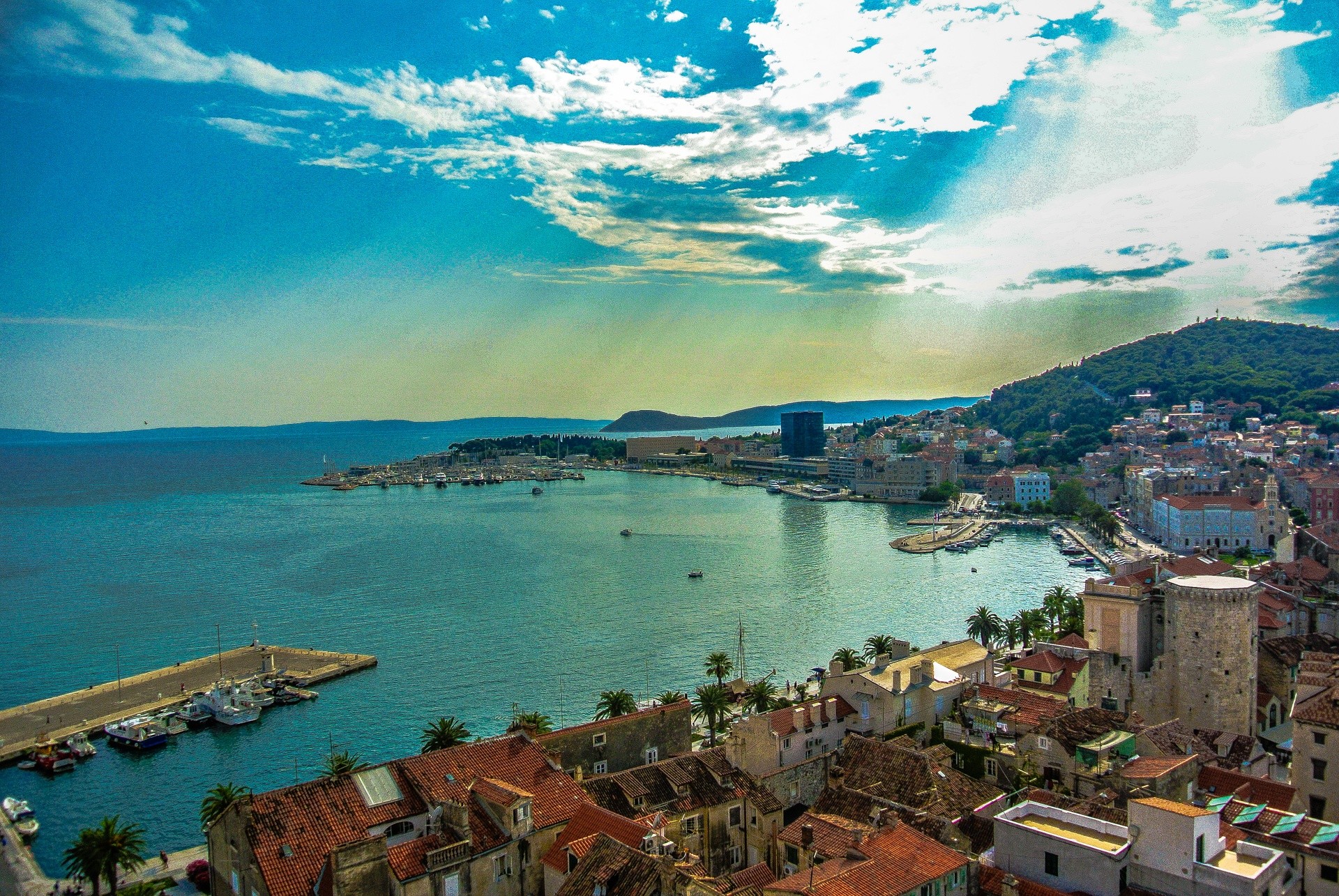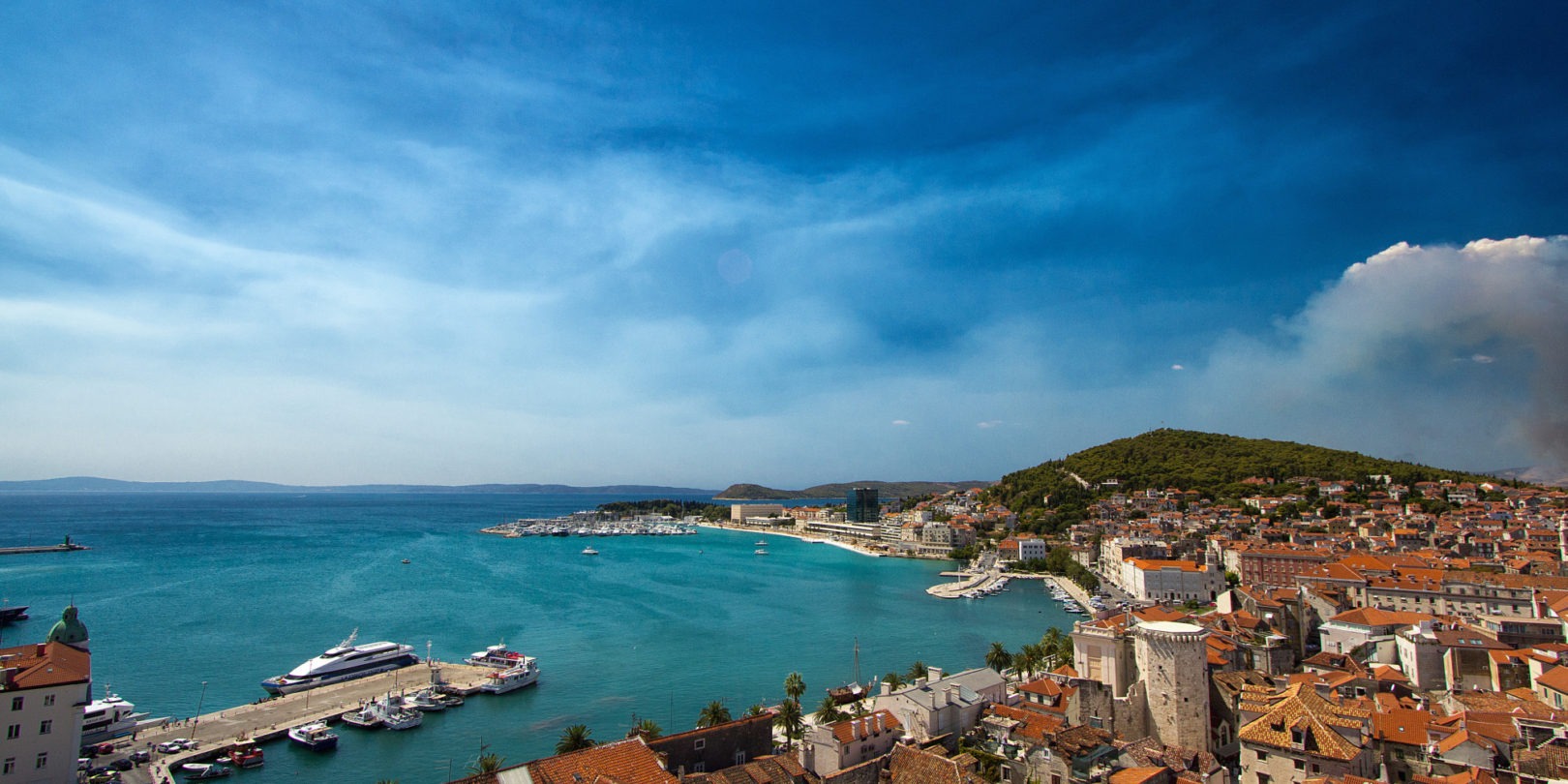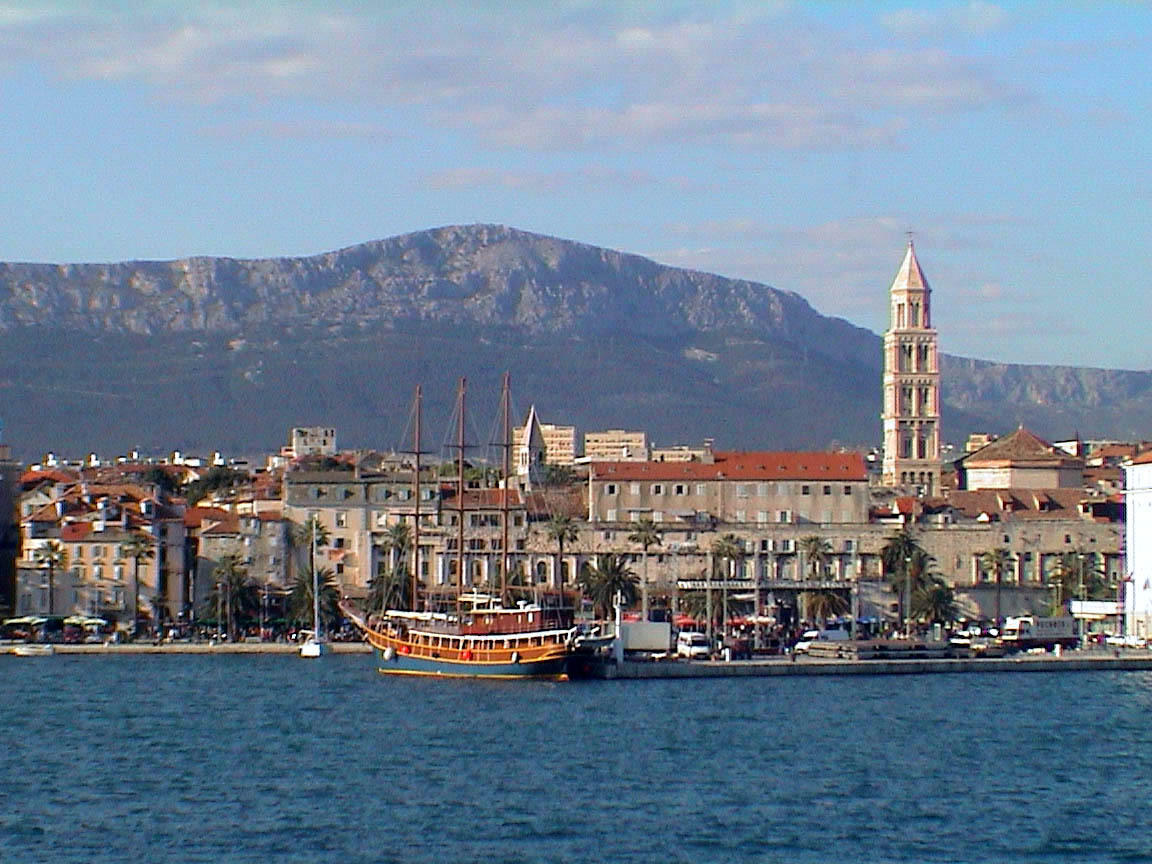
It is a marvelous landmark of the past, built in the 4th century and it contains a military camp, the Golden Gate as well as the villa where the Roman emperor Diocletian retired. Tourists can see architectural remains of all periods from Roman times onward while walking under the laundry lines of the modern citizens.While you are in the Old Town, make sure to visit Diocletian’s Palace – this is one of the best things to do in Split!

The palace is still thought of by the inhabitants of Split as the city centre and not a museum: The cathedral and baptistery are in use, the peristyle court is a popular meeting place, shops occupy the Roman arcades, and the main market is just outside the east gate of the palace. Efforts have been made not only to excavate further the Roman remains and identify and elucidate remains of the early medieval period but also to preserve the eclectic architecture of the complex.

It contains buildings and embellishments of medieval, Renaissance, and Baroque periods, as well as fine examples of Roman architecture. The area within the walls of the palace has been continuously inhabited since it was built. They built their homes within the seven-acre (three-hectare) palace compound, incorporating its walls and pillars. The palace was damaged by the Avars, who sacked nearby Solin (Salona) about 614 its inhabitants first fled to the islands but then returned to seek refuge in the palace ( c. A tree-lined promenade now keeps the Adriatic from lapping against the south walls as it once did. Originally it had 16 towers (of which 3 remain) and 4 gates. In 1995 the city celebrated the 1,700th anniversary of the initiation of construction of the Roman palace.īuilt within the palace is the nucleus of the “old town.” The immense complex has walls 7 feet (2 metres) thick and 72 feet (22 metres) high on its seaward side and 60 feet (18 metres) high on the northern side. During World War II those facilities were wrecked by the Germans and by Allied bombing, but the old town was little damaged, and repairs were subsequently made. The growth of the port facilities dates from the temporary loss of Rijeka (Fiume) to Italy in 1924 (recovered 1945). Split became part of Yugoslavia in 1918 and of independent Croatia in 1992. The Austrians ruled from 1797 to 1918 with a brief French interregnum in 1808–13.

In 1105, after brief incursions by Venice (998) and Croatia (1069), the city acknowledged the nominal suzerainty of Hungary-Croatia and fought sporadically with its rival Trogir from 1420 to 1797 it was held by Venice. SpaceNext50 Britannica presents SpaceNext50, From the race to the Moon to space stewardship, we explore a wide range of subjects that feed our curiosity about space!įrom 812 Split developed as a major Byzantine city.Learn about the major environmental problems facing our planet and what can be done about them! Saving Earth Britannica Presents Earth’s To-Do List for the 21st Century.Britannica Beyond We’ve created a new place where questions are at the center of learning.100 Women Britannica celebrates the centennial of the Nineteenth Amendment, highlighting suffragists and history-making politicians.
#Splitt croatia how to#


 0 kommentar(er)
0 kommentar(er)
